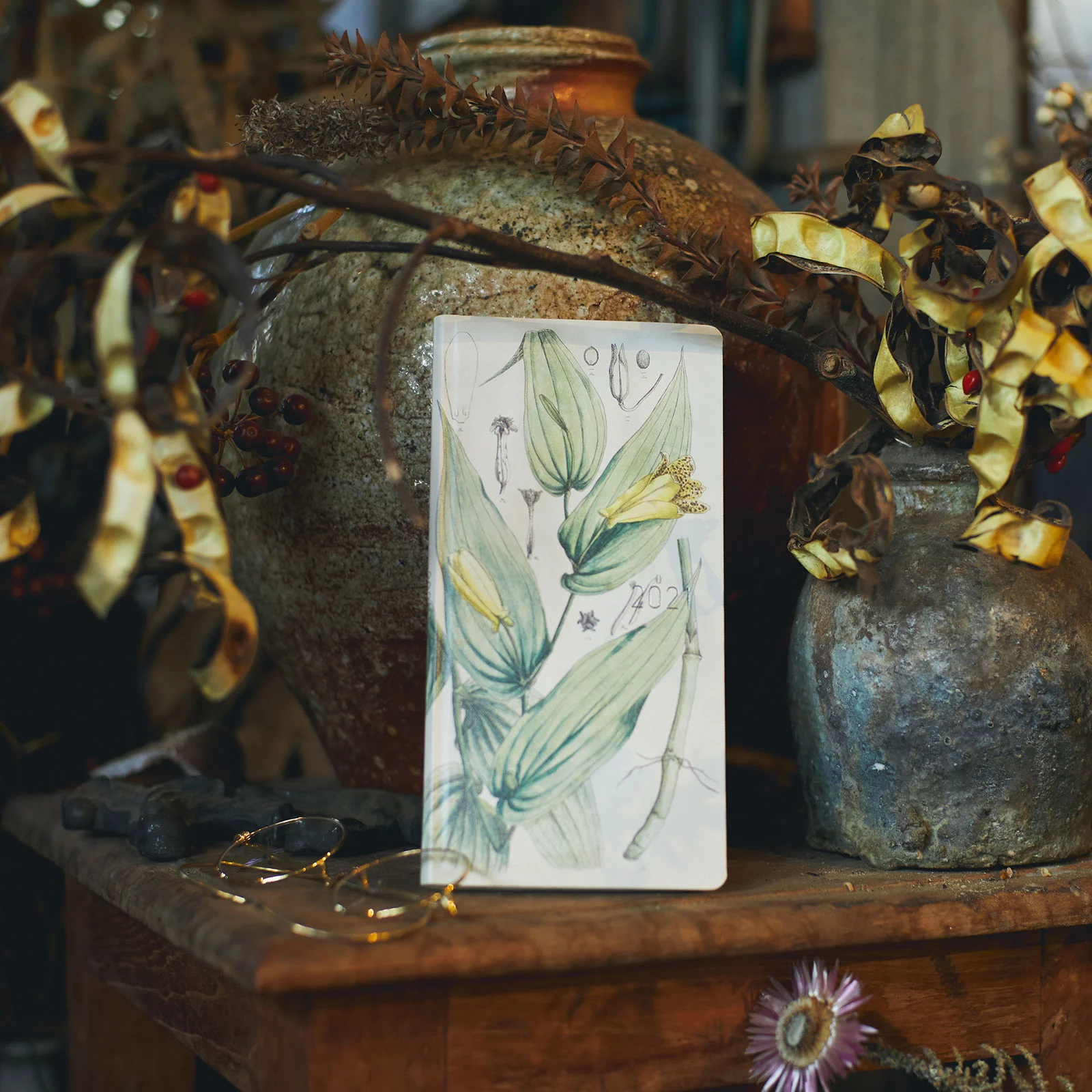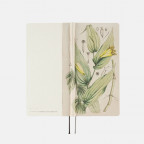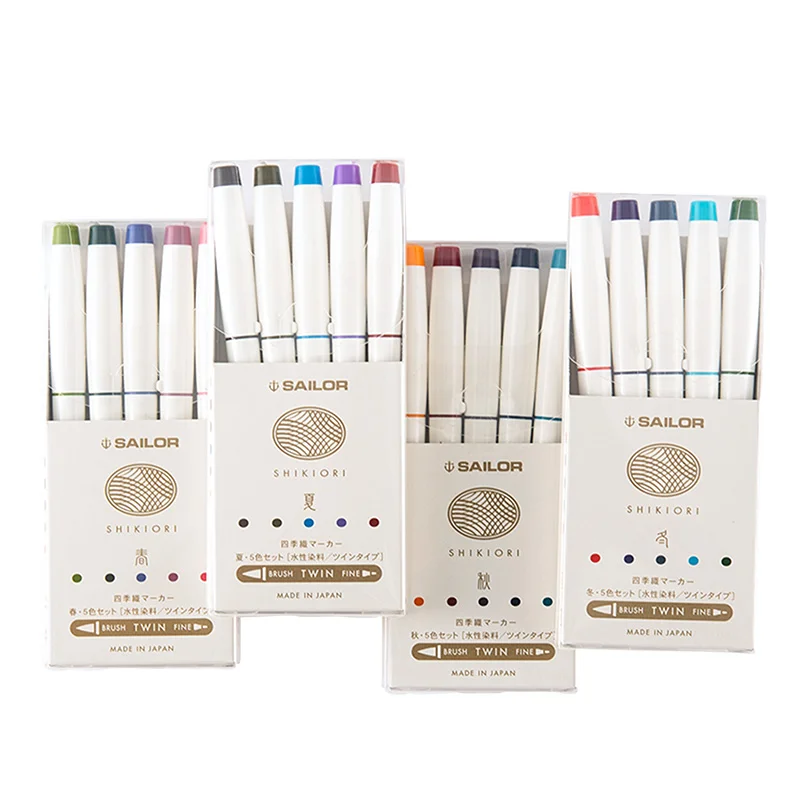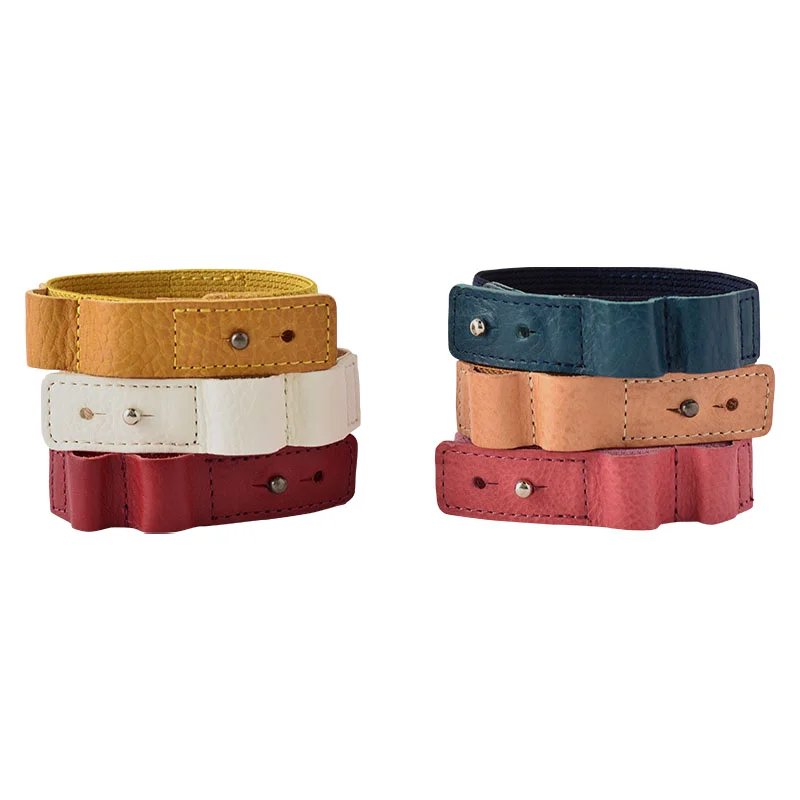Tomitaro MakinoToad LilyWeeks Hardcover Book (Japanese)
This Weeks book features an intricately drawn illustration of a jourou hototogisu, or toad lily, created by the botanist Tomitaro Makino in 1888.
The toad lily’s yellow flowers are set off by vibrant green leaves. The name jourou means “lady of the palace,” a striking metaphor for the flowers’ elegant beauty. Makino discovered the flower in 1887 and later colored a printed version of the original illustration. This diagram comes from the very beginning of his book Illustrations of the Flora of Japan.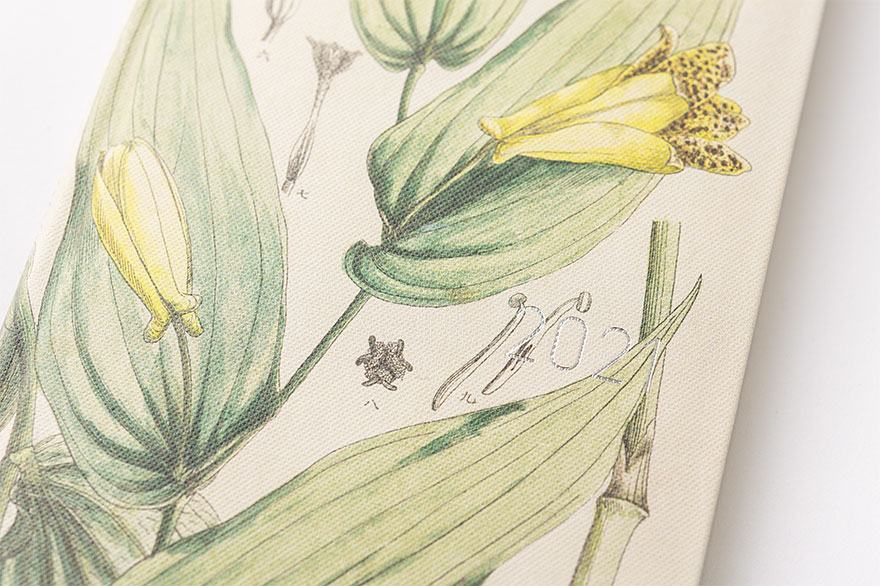
About 130 years ago the scientific community, using magnifying lenses and microscopes, began to construct diagrams of the toad lily. Professor Makino faithfully illustrated all the details of the flower, like its spots and the structure of its leaves. His illustration also lays out its various parts in detail, all of which were drawn while carefully referencing the real thing.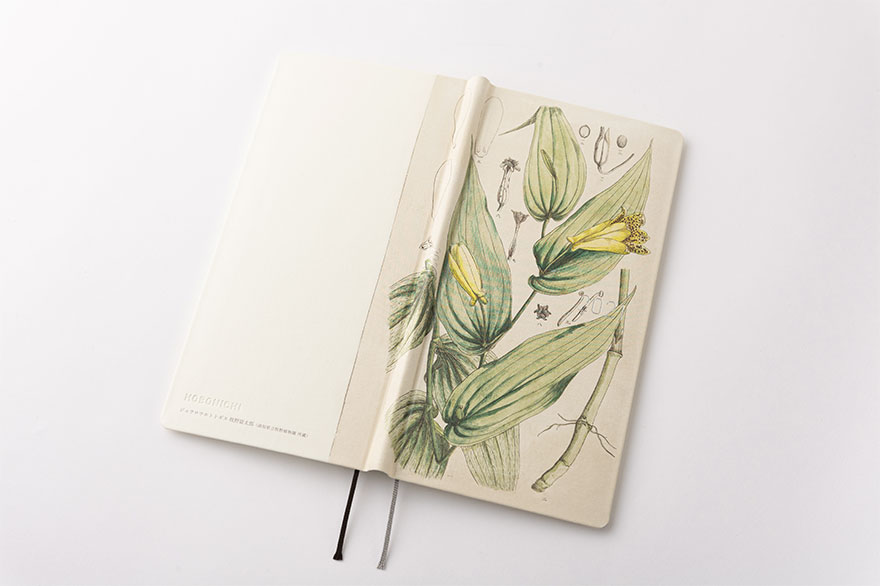
The rough fabric of the book cover is modeled after canvas, and the vintage botanical illustration makes this book a joy to have in your daily life.
The cover has been constructed as a light hardcover book with some give to it so it still bends.
When you order this Hobonichi Techo Weeks, you’ll receive a clear, adhesive corner pocket you can stick anywhere you like.
If you’d like storage space or a way to change up the look of your Weeks book, you can customize your book by pairing it with a Weeks cover.
<See Weeks cover lineup>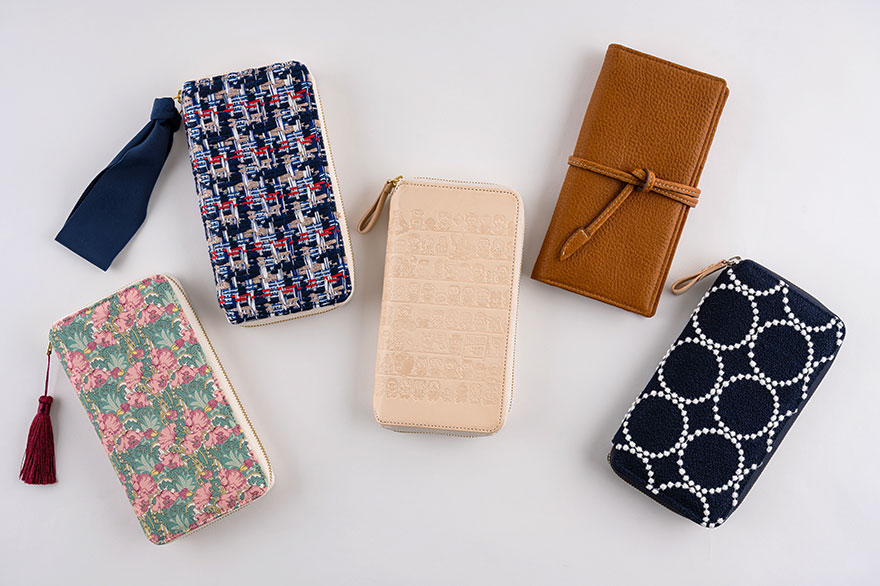
About Botanist Tomitaro Makino
Born April 24, 1862 in present-day Sakawa Town, Kochi Prefecture. Raised in the rich natural surroundings of Tosa City, he began to study botany independently as a young child. Moved to Tokyo and devoted himself to botanical research through the Department of Botany at Tokyo University’s Faculty of Science.
Founded “The Botanical Magazine” with a close friend; they collaborated to publish their discovery of the flowering plant Yamatogusa in 1889. Collected over 400,000 specimens during his 94-year lifespan, and named over 1,500 discovered species. Known as the “Father of Japanese Botany.”
Photograph/information provided by the Makino Botanical Garden.
Staff List
- Photographer
- Styled Images: Shinnosuke Yoshimori / Product Detail: Hiroyuki Oe
- Stylist
- Reiko Ogino
![]()
- Tomitaro MakinoToad LilyWeeks Hardcover Book (Japanese)
- 2,640
Specifications
- Overview
Size W: 94 x H: 188 x T: 10 mm / W: 3.7" x H: 7.4" x T: 0.4"
*Specifications may vary slightlyWeight Approx. 137 g Main material Synthentic canvas, paper - Weeks Book (Japanese / April Start)
Language Japanese Pages 240 pages Binding Stitch-binding Paper Type Thin, light Tomoe River paper resistant to bleeding and designed for planners. Graph Paper Size 3.55 mm Yearly Calendar 2020, 2021, 2022 Yearly Index Apr. 2021 - Mar. 2022 (2 pages) Monthly Calendar Mar. 2021 - Apr. 2022 (28 pages) Daily Quotes One per week (Japanese) Weekly Calendar Mar. 1, 2021 - Apr. 3, 2022 (114 pages)
*All weekly pages include quotes.Graph Paper 75 pages Informational Pages Shorthand Note-Taking / Graph Paper / Using Common Items to Measure Size / My 100 / Solar Terms / Weather Terms for your Techo / Basic Posture Techniques / Emergency Preparedness / Age Table / Conversion Chart / Getting the most of Hobonichi / Contact List / Personal Notes Listed Information Week of the year / Rokuyo (traditional Japanese calendar) / Solar terms / Japanese holidays / Moon phase (weekly pages include every phase, monthly calendars only include full and new moon)
*The 2021 Weeks book (April Start) is produced based on information as of September 2020, and therefore does not reflect the amendment in dates of the following national holidays: Marine day, Mountain day, and Sports day. We apologize for the inconvenience caused and ask for your kind understanding.
Please Read Before You Buy
In order to provide you with the most satisfaction for your product, we've compiled a list of warnings, potential issues, and tips to keep in mind for this particular product. Please be sure to read this information carefully before placing your order.
- Test fountain pens before regular use
The Hobonichi Techo's Tomoe River paper is designed to prevent bleed-through, but some fountain pens and water-based ink pens are not compatible with this paper. When switching to a new pen, we recommend testing the pen somewhere in the book, such as the back memo pages, to see if the ink bleeds through or takes an especially long time to dry.
- Cover corners are slightly bumpy and shiny
The corners of the cover contain light traces of press marks, shines, and lumps. This is an unavoidable part of the manufacturing process.
- Imprinted year numbers may peel
The numbers of the year are stamped onto the cover in metallic or other colored leaf, so strong rubbing or everyday use may cause the numbers to peel off.
- Avoid storing in hot and humid places
Please avoid storing your product in hot, humid places or placing it atop other objects for long periods of time as this may result in lower quality and color stains.


